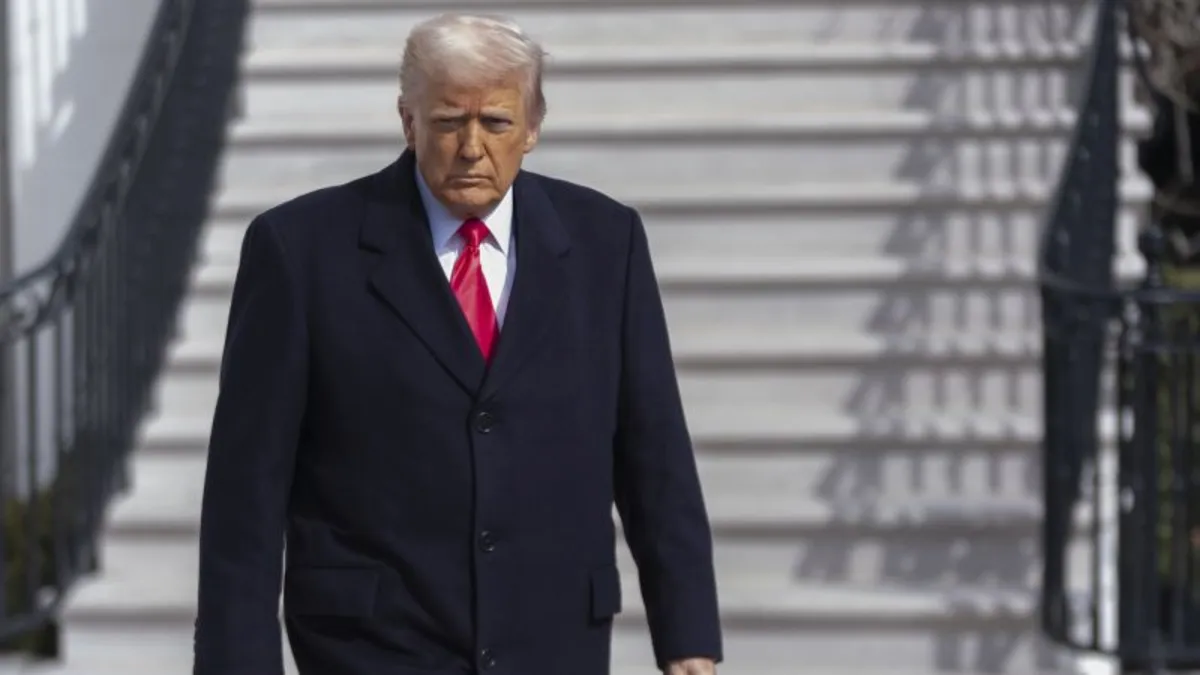
In a significant move to avert a government shutdown, nine Senate Democrats and one independent who caucuses with the Democrats joined forces with Republicans on a pivotal procedural vote. The vote, which passed with a margin of 62-38, was aimed at advancing a House-passed government spending bill that would fund federal operations through September 30. This bipartisan effort comes amid increasing pressure from various factions within the Democratic Party to block the Republican funding measure.
Senate Minority Leader Chuck Schumer and other prominent Democrats supported the measure, which drew praise from former President Donald Trump. Notably, the only Republican to oppose the advancement of the bill was Sen. Rand Paul of Kentucky. Following this procedural vote, the Senate is set to consider four amendments to the funding bill before a final passage vote.
The following members of the Democratic caucus cast their votes in favor of advancing the government funding measure:
Senate Minority Leader Chuck Schumer Senate Minority Whip Dick Durbin Senate Democratic Chief Deputy Whip Brian Schatz Sen. Kirsten Gillibrand (Chair of the Democratic Senatorial Campaign Committee) Sen. Maggie Hassan Sen. Catherine Cortez Masto Sen. John Fetterman Sen. Gary Peters Sen. Jeanne Shaheen Sen. Angus King (Independent)In another significant political development, President Donald Trump made two false claims regarding immigration statistics during his presidency. He asserted that in his first month in office, the country recorded the lowest level of illegal border crossings. While he referenced a low number of migrant apprehensions in February 2025, official statistics indicate that even lower figures were recorded in the early 1960s.
Moreover, Trump claimed that by the end of his first term, illegal immigration was at its lowest level. However, the chart he mentioned does not support that assertion, as it points to April 2020, a time when global migration had sharply declined due to the COVID-19 pandemic. Following April 2020, migration numbers at the southern border increased monthly through the end of Trump's term.
The Senate has initiated a vote to break a Democratic filibuster regarding the government funding bill, which requires 60 votes to advance. This procedural maneuver is critical to prevent a government shutdown as the midnight deadline approaches.
In a campaign-style address at the Department of Justice, President Donald Trump criticized Biden-era officials, alleging partisan misconduct. Surrounded by allies, including former national security adviser Michael Flynn, Trump expressed outrage over investigations targeting him, claiming they aimed to undermine his presidency.
Trump vowed to remove what he termed “rogue actors and corrupt forces” from the government, promising to expose their alleged crimes. He also boasted about revoking security clearances for former officials involved in investigating him and expressed support for those convicted in the January 6 Capitol riots, labeling them as “political prisoners.”
The decision by Senate Democrats to support the Republican funding bill has created noticeable tension within the party. House Minority Leader Hakeem Jeffries refrained from directly criticizing Schumer, despite expressing dissatisfaction with the Senate's approach. He emphasized that House Democrats believe they represent the American people's interests by advocating for a short-term funding extension.
Furthermore, Senator John Fetterman referred to those in his party opposing the funding bill as “free riders,” arguing that a government shutdown would not benefit anyone. His remarks reflect a growing frustration among Democrats regarding their limited options and the pressure to respond effectively to the Republican agenda.
In international news, newly sworn-in Canadian Prime Minister Mark Carney firmly rejected U.S. President Trump’s repeated suggestions of annexing Canada. Carney highlighted the distinct cultural and political differences between the two nations, asserting that Canada will never become the 51st state of the U.S.
Despite respecting Trump's focus on significant issues like fentanyl, he emphasized the importance of Canadian sovereignty and the unique circumstances surrounding his inauguration, which included the participation of indigenous elders.
The ongoing negotiations surrounding the government funding bill illustrate the complexities of bipartisan cooperation in a politically charged environment. As lawmakers confront pressing deadlines and internal party divisions, the outcomes will significantly impact both domestic governance and international relations moving forward.